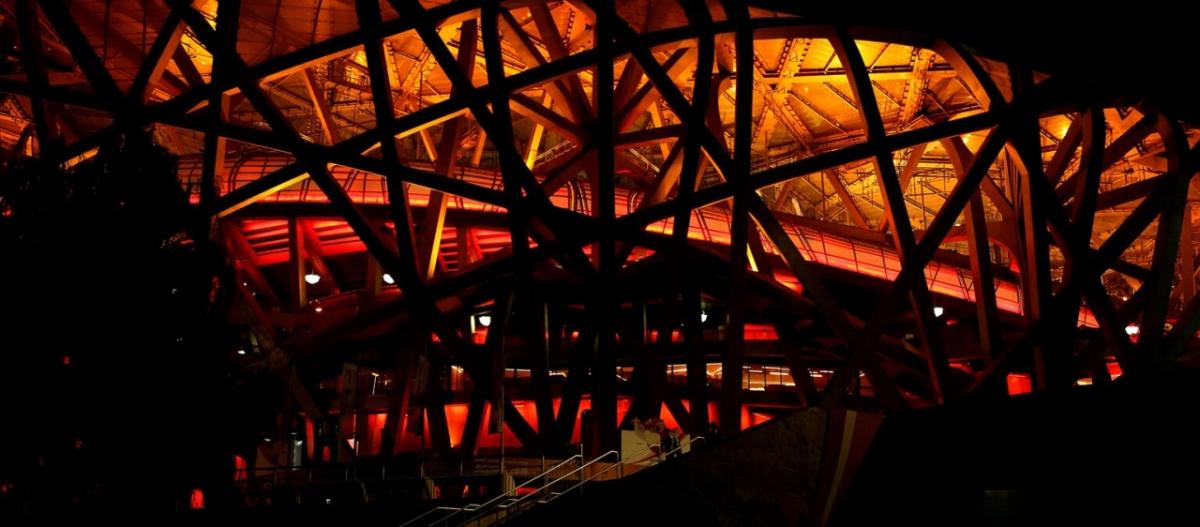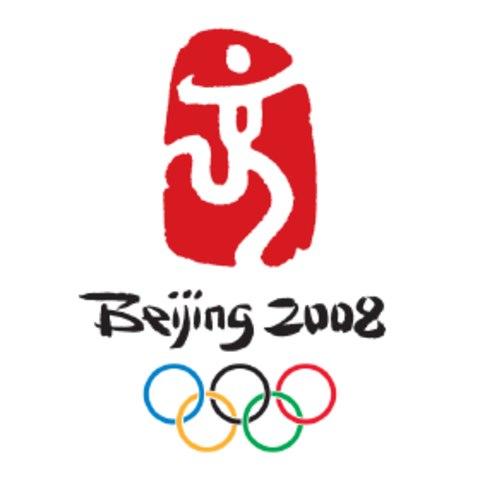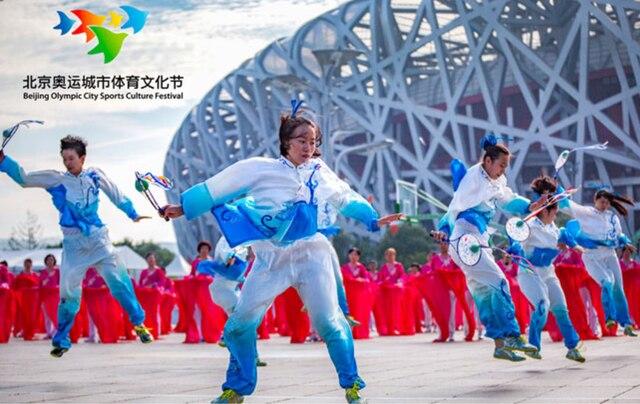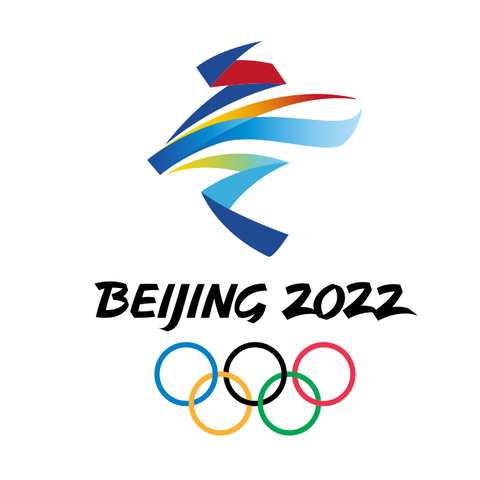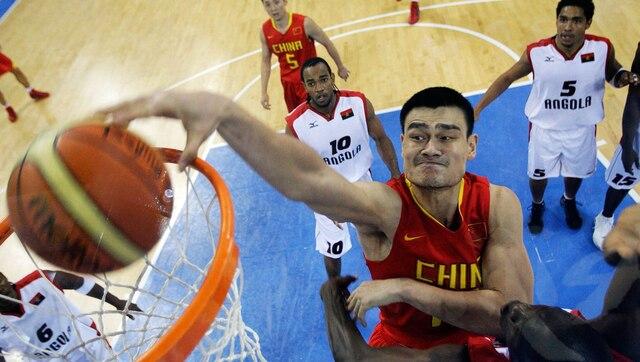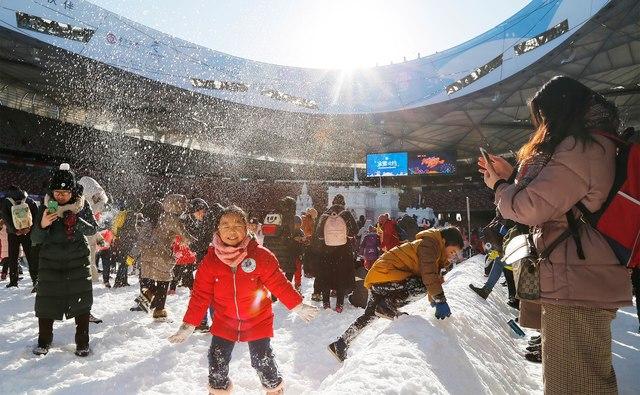Beijing 2008 Legacy Dovetails With 2022 Winter Games to Boost Sports Participation in China
On the 11th anniversary of the Olympic Games Beijing 2008, the main legacy of the event is clear to see across China: a massive increase in sports participation amongst the world’s largest population.
International Olympic Committee news
It is a legacy that is set to be further enhanced by Beijing’s hosting of the 2022 Olympic Winter Games, which has a key objective of engaging 300 million people in winter sports. The Beijing Olympic Development Association (BODA) was founded in 2009 to oversee the Olympic legacy and manage the financial surplus from the Games for the benefit of sport and culture.
It organises a sports and culture festival every summer at the Olympic Park on 8 August – the anniversary of the start of the Games and China’s National Fitness Day. It features 40 simultaneous events that include opportunities to experience summer and winter sports, health and wellbeing activities, and traditional Chinese arts. In 2018, more than 100,000 people took part over the week.
BODA also helped organise the Tour of Beijing cycling race, the Combat Games and World Mind Games, while assisting city districts in the hosting of triathlon, cycling and dance events, all of which greatly encouraged public participation.
INSPIRING YOUTH
Other events staged by the legacy body include the Beijing International Youth Football Invitation Tournament and the World Junior Sudoku Championship. BODA has also partnered with other organisations to deliver the Olympic Education Series for schools in Beijing. These include more than 20 activities, such as youth football, ice hockey leagues and Olympic winter camps. More than 1,000 schools and 200,000 students have participated in these events. In total, BODA says approximately 400 million young people have benefited from education programmes focused on the Olympic values and themes.
In terms of linking the legacy of Beijing 2008 with the 2022 Winter Games, BODA has helped organise the annual World Winter Sports (Beijing) Expo since 2016, with the aim of promoting the development of the winter sports industry in China and the world. Consisting of exhibitions, forums and other activities related to the winter sports industry, the event is attended by about 160,000 visitors, including 24,000 industry professionals. This year it will feature an ice rink, snow slope and curling participation opportunities.
As China has transitioned from an Olympic Summer Games host to an Olympic Winter Games host, so participation levels in winter sports have increased. China’s winter sports industry grew to be worth USD 53.6 billion in 2018, up from USD 46.2 billion the year before, as the nation has striven to host more top-level events, train more coaches (there are now 5,706) and boost public participation. The country boasted 742 skiing resorts and 596 ice rinks by last year, while a total of 4,401 events in Beijing across the 2018-19 national winter sports season had 8.15 million participants.
SPORTING BOOM
Two of the best examples of how Beijing 2008 boosted public sports participation are in tennis and basketball. The Games helped fuel a USD 4 billion investment into tennis across China and boosted participation to such an extent that there are now an estimated 14 million players in the country, up from one million in 1988.
Basketball legend Yao Ming, one of the faces of Beijing 2008, has helped create a basketball programme that has reached 350 schools and more than 150,000 children across China, while also helping build school facilities and courts in rural areas.
Another initiative linked to Beijing 2008 was the creation of the “Dan Fei” (Fly Solo) programme, which encouraged athletes to develop their own businesses, brands and social media followings. Olympic gymnast Li Ning, who now owns a sports clothing line, is a prime example – with such success stories inspiring more young people to take up sports.
VENUES IN FULL USE
The Beijing 2008 venues – including the renowned “Bird’s Nest” National Stadium and “Water Cube” National Aquatics Centre – continue to play a key role in sports. Of the 16 new venues built for Beijing 2008, 15 are in use today for sports, cultural and recreational activities. The Bird’s Nest hosted the 2015 Athletics World Championships and will host the Opening and Closing Ceremonies for Beijing 2022. It is also transformed into a winter wonderland theme park for two months every year for an event, which has attracted more than 2.1 million people, to promote the 2022 Games.
The Water Cube continues to host national and international sporting events while being open to the local public, and will host the curling competition at Beijing 2022. The Shunyi Olympic Park – which was used for rowing, canoe and open water swimming – is now used for competition and recreational sports activities. The Wukesong Sports Centre, which hosted basketball at Beijing 2008, is now a major entertainment venue that has hosted the likes of Beyoncé and Metallica, and will stage ice hockey at Beijing 2022.
The triathlon course is still used for national and international competitions, while the hockey field at the Olympic Forest Park is open to the public for ball games. The 13 existing venues that were upgraded for the 2008 Games continue to be used. Four-time Olympic table tennis champion Deng Yaping, who won gold in the women’s singles and doubles competitions in both 1992 and 1996, fully understands the positive impact of the 2008 Summer Games in her nation:
“We had a wonderful Olympics, really truly exceptional Olympic Games in Beijing. We’re so proud of that,” said Deng, who in 2003 was voted Chinese Athlete of the Century. “The Olympic spirit encourages young people and many of the general public to participate in sport, like a sports-for-all centre for the public to train, to practise, to give them a really high standard. We just wanted to let people love sports and love the Olympics.”

